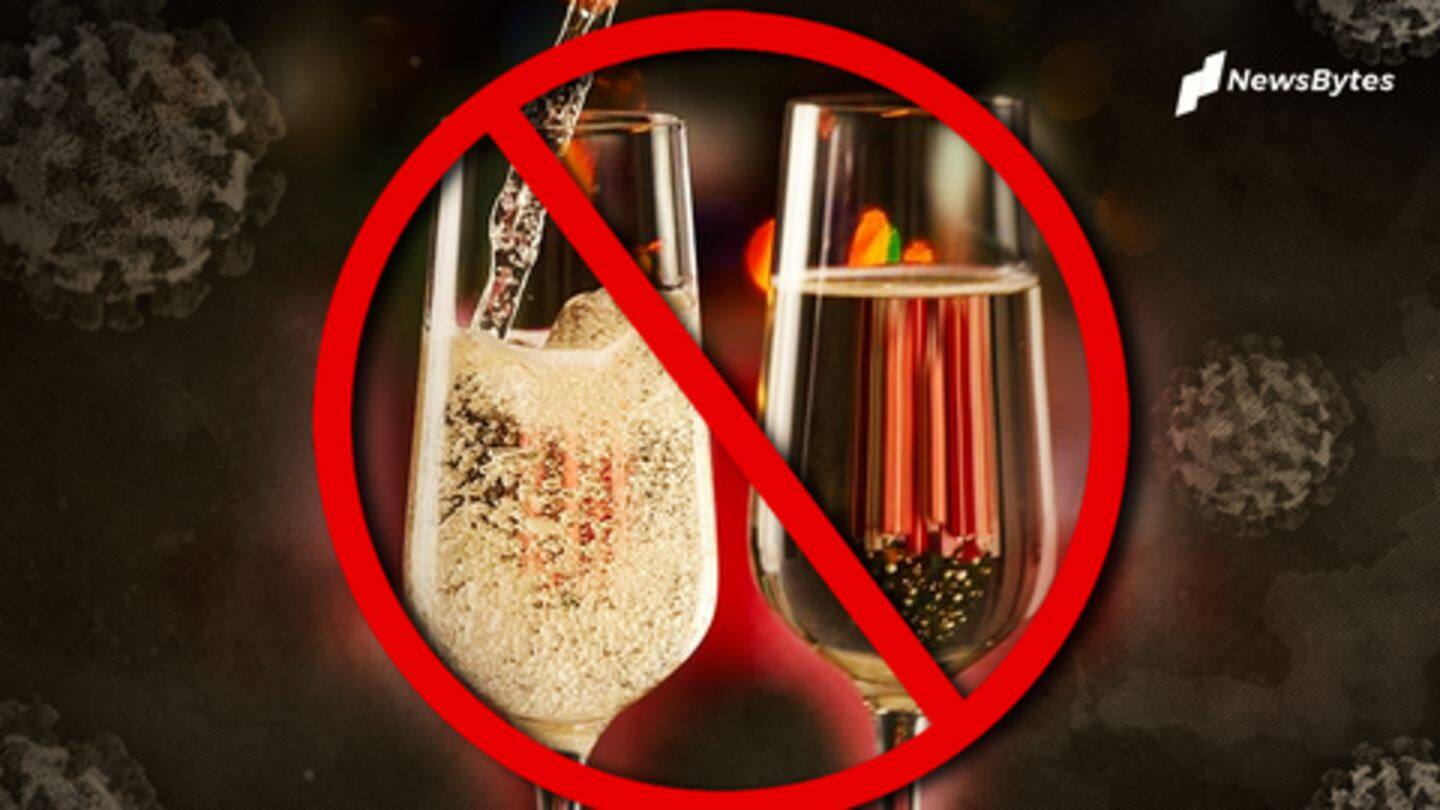
Why government banned alcohol sale during the 40-day lockdown?
What's the story
When the Centre released a new set of guidelines for the second bout of lockdown, it clearly stated that the sale of alcohol would be banned till May 3. This decision was taken despite some state governments mulling the option of re-opening liquor shops to generate revenue.
As it turns out, Centre was following the suggestions of World Health Organization on coronavirus.
Context
First, a bit about how the pandemic has affected India
In the few months after it originated in China in 2019, coronavirus ripped the world apart. A staggering 154,270 people have died due to COVID-19 and 2,250,945 are infected. Countries like the United States, Italy, Spain, France, and Iran are the worst-hit.
India wasn't immune either and has lost nearly 500 to the pandemic. The number of infections stands at 14,425.
Lockdown
India's 40-day lockdown started on March 25
Then, on March 24, Prime Minister Narendra Modi addressed the country saying that a nationwide lockdown had been imposed for 21 days. Citing how contagious and fatal the disease is, he asked Indians to stay indoors.
Three weeks later, he said the restrictions couldn't be lifted just yet, announcing an extension of another 19 days.
Thereafter, MHA released guidelines banning liquor sales.
Reasons
Alcohol weakens immunity, hence, shops were closed
Apparently, findings of the WHO prompted the government to take the decision, a report in ET said. The global organization said alcohol consumption weakens the body's immunity.
On April 14, WHO's regional office in Europe noted, "Alcohol consumption is associated with a range of communicable and non-communicable diseases and mental health disorders, which can make a person more vulnerable to COVID-19."
Advisory
Health Ministry had released an advisory too
The Ministry of Health also released an advisory titled "Minding our minds", where the harmful effects of alcohol consumption were detailed.
"The use of tobacco/alcohol/other drugs to cope with emotions or boredom can worsen physical and mental health, and reduce immunity. People who already have a substance use problem may require professional help, especially when they feel low or are stressed," the document read.
Other reasons
Domestic abuse, social distancing were other reasons
Another reason which drove the decision was domestic abuse. A senior official said domestic abuse has increased during lockdown and alcohol consumption amplifies it.
The government was also worried that opening shops would lead to serpentine queues where social distancing norms would go for a toss. Hence, it deemed it idoneous to not allow alcohol sales.
Suggestions
Suggestions of states were junked, shops ordered to remain shut
The ban, however, is costing the states dearly, which is why some of them tried reasoning with the Union government.
A couple of states said they would get liquor home-delivered and others said shops should be allowed to function for limited hours.
Their requests were junked.
Some states that allowed shops to run received an earful from the Centre, and the outlets were shut.
Rules
Distilleries can work, but alcohol won't be sold during lockdown
With the ban, bigger states like Uttar Pradesh and Maharashtra are losing approximately Rs. 50-100cr daily.
On Thursday, Uttar Pradesh government said distilleries can resume working from April 20 (when some restrictions will be relaxed) but capped sale, packaging or bottling of liquor till May 3.
"Sale of liquor is neither an essential activity nor is it a perishable commodity," an official said.
Revenue
Revenue has been hit, COVID-19 battle becoming difficult
For the states, it's a double-edged sword. A ban on alcohol means "protecting people", but it's also translating to no money.
Most states earn 15-30% of their revenue from alcohol sales.
In the fiscal year 2019-20, Maharashtra, UP, Telangana, Karnataka, West Bengal, Rajasthan, and Punjab generated Rs. 24,000cr, Rs. 26,000cr, Rs. 21,500cr, Rs. 20,000cr, Rs. 11,874cr, Rs. 7,800cr, and Rs. 5,600cr from alcohol sales.
Solutions
State governments have stopped development activities to save money
Last week, Delhi Chief Minister Arvind Kejriwal called for cutting expenses and ordered departments to stop all spendings, except salaries.
Kerala's Finance Minister Thomas Isaac also said states are running out of capital.
"Most states have limited the borrowing to Rs. 500-1,000 crore [at interest rate of 9% or so] and started cutting salaries or halting other developmental activities," he said.